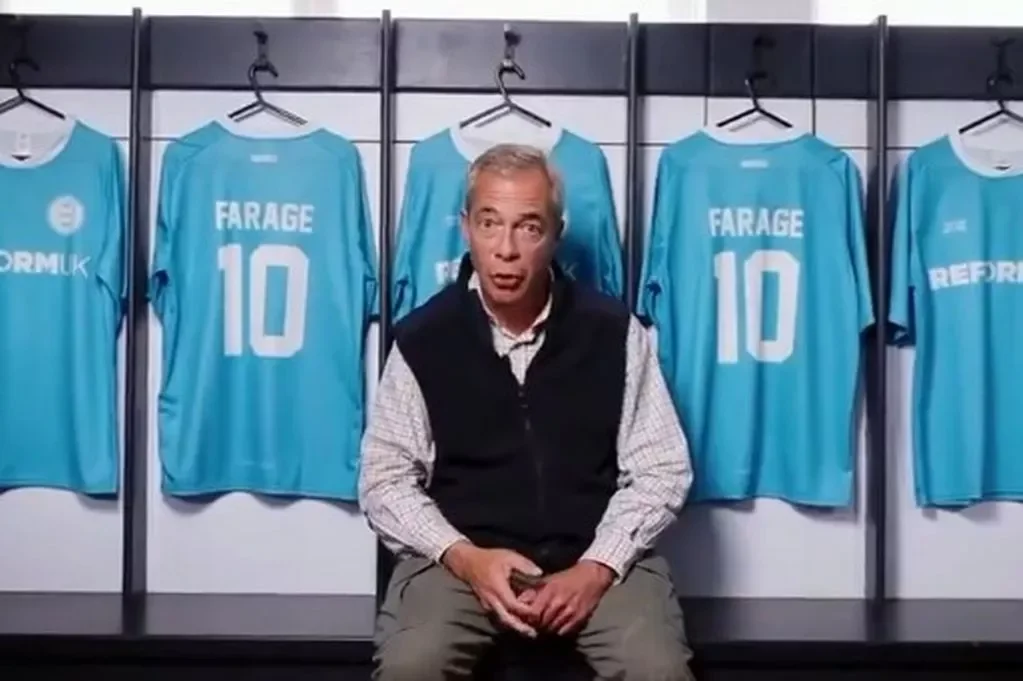Reform UK’s release of a branded football shirt, fronted by Nigel Farage, has drawn outrage across social feeds. For some, it’s a cheap gimmick. But dismissing it risks missing the real danger: this is a political provocation dressed in the world’s most popular sport. Football isn’t the backdrop here - it’s the weapon.
📊 Supporting Stats
Football remains the UK’s most-watched sport, with over 31 million people tuning into the 2022 World Cup final on the BBC and ITV combined (BARB).
Gen Z is both the most football-engaged generation and the most politically disillusioned: 49% of 18–24 year olds in Britain say they have little or no trust in politics (Ipsos, 2024).
The far right has long sought cultural entry points. In Germany, for instance, far-right groups have attempted to infiltrate fan scenes at more than 30 clubs since 2019 (Deutsche Welle).
🧠 Decision: Does It Work?
From a branding perspective, this “shirt drop” achieves its goal. It drags football into culture-war territory, ensuring maximum visibility and outrage amplification. Reform UK understands that fandom loyalty in football is tribal, emotional and community-led - and they are seeking to parasitically attach their politics to that energy. In culture terms, it’s cynical but effective: the image of Farage in football colours spreads further than any policy pamphlet ever could.
📌 Key Takeouts
⚽ The shirt isn’t merch - it’s a symbol designed to make nationalism feel playable, wearable, normal.
🪧 Farage’s past statements about “keeping politics out of football” expose the hypocrisy: politics is only unwelcome when it challenges the status quo.
🔄 Outrage is part of the tactic. By mocking the shirt as a joke, opponents still fuel its circulation.
👥 The real target is vulnerable young fans, pulled into a narrative where “outsiders” are blamed for national decline.
🚨 For brands in football - from Nike to Sky Sports - silence is complicity. Aligning with inclusivity and belonging isn’t a CSR play anymore, it’s brand survival.
🔮 What We Can Expect Next
This won’t be the last attempt to politicise football through merch, stunts or culture-war gestures. As the men’s Euros and women’s game continue to surge in visibility, football will remain a key arena where identity, nationalism and inclusion clash. The risk for the industry is allowing the far right to set the terms of debate unopposed. Expect more shirt stunts, terrace messaging and online meme campaigns aimed at turning the pitch into a proxy battlefield for Britain’s future.
